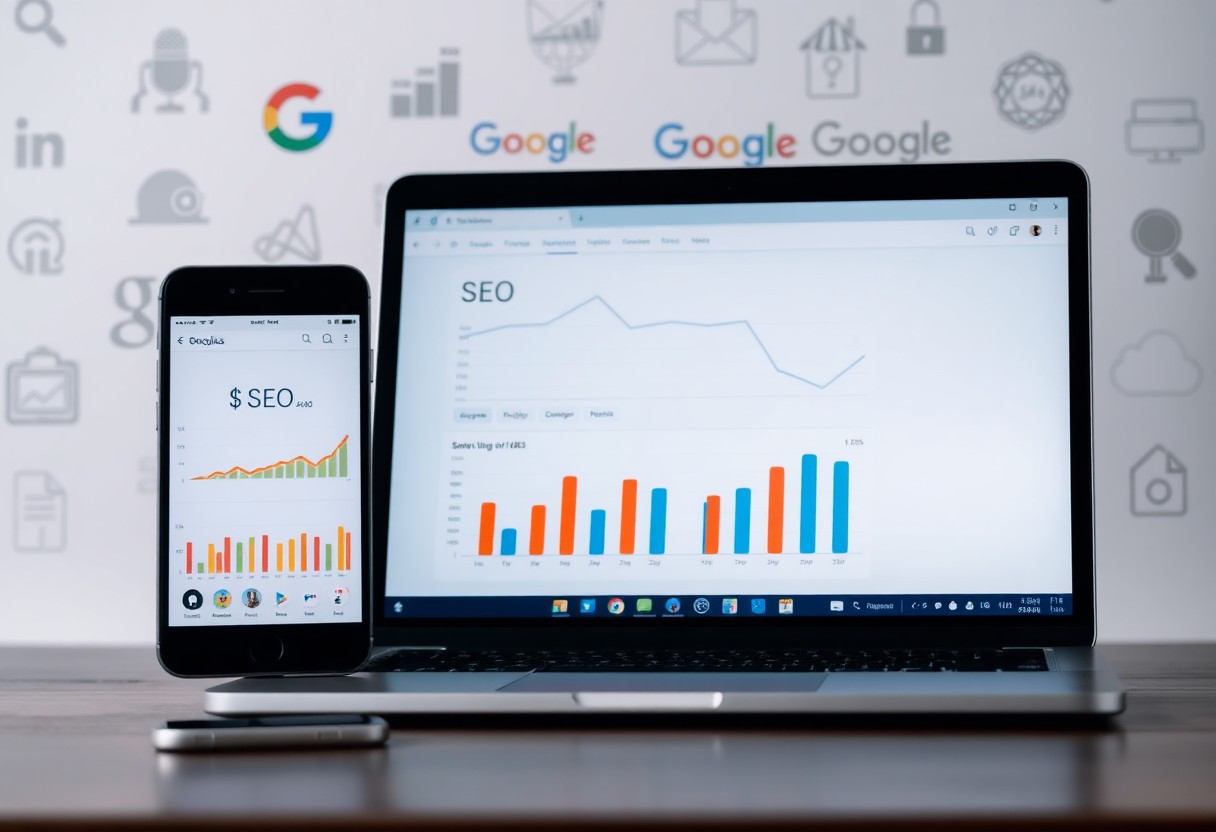
There’s a lot to understand about SEO, but I’m here to break it down for you. In this post, I’ll...
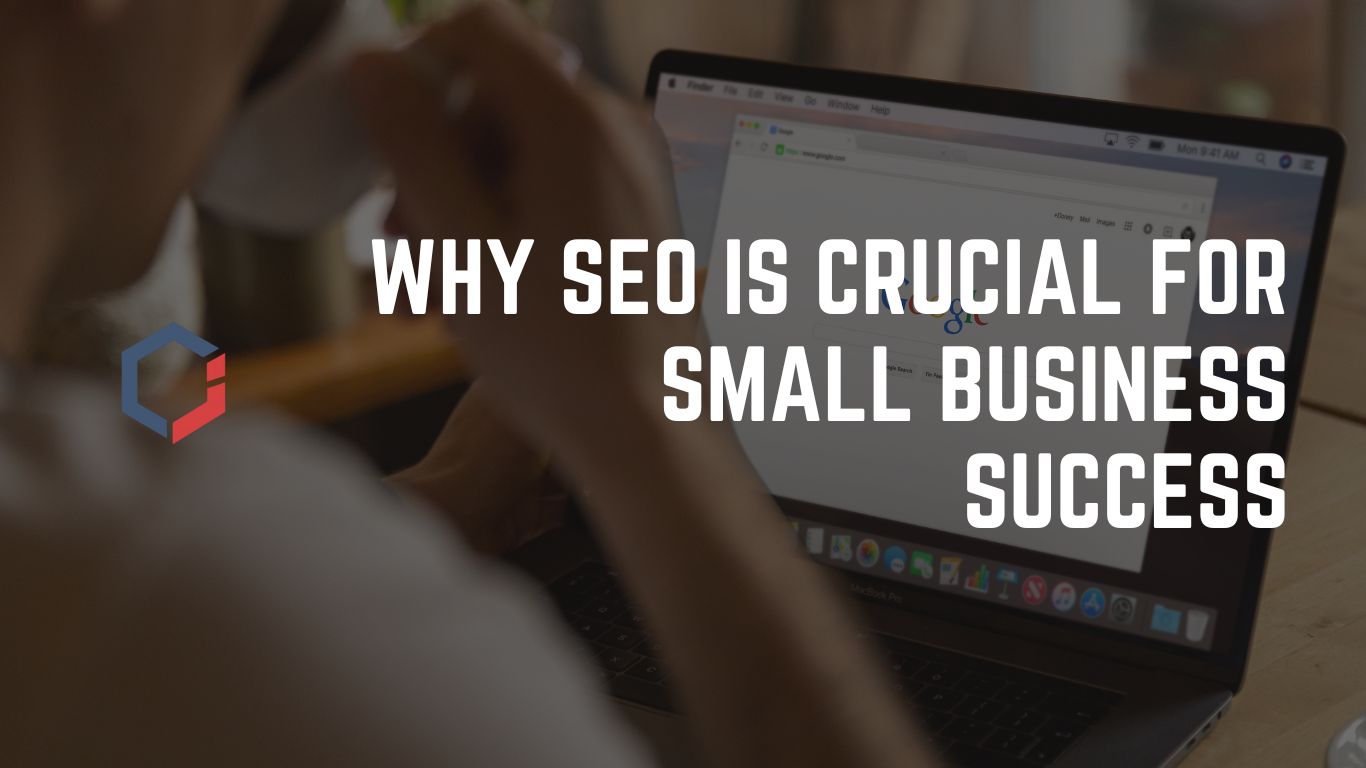
Imagine a local bakery, “Sweet Delights,” struggling to attract customers. They had amazing pastries, but nobody knew they existed. After investing in SEO, their website climbed to the top of search results for “best pastries near me.” Soon, Sweet Delights was booming, with lines out the door!
Small businesses face a big challenge: getting noticed. Big companies have huge marketing budgets. So, how can smaller businesses compete? SEO is the answer. It provides long-term value and helps you get found online.
In today’s digital landscape, having a great product or service isn’t enough. You need to be discoverable online where your customers are searching. According to recent studies, 93% of online experiences begin with a search engine, and 75% of users never scroll past the first page of search results. For small businesses, this presents both a challenge and an opportunity.
SEO helps small businesses compete with the big guys. You don’t need a massive budget to rank well in search results. Good SEO can put you right next to larger corporations. It gives you a chance to grab customers who are looking for what you offer. This is something that every small business needs to take advantage of!
A family-owned hardware store in Denver was losing business to big-box retailers. After implementing targeted local SEO strategies, they saw a 67% increase in website traffic and a 43% increase in in-store visits within six months. Their investment in SEO cost less than a quarter of what they would have spent on traditional advertising.
Think about old-school marketing, like print ads or TV commercials. They cost a fortune! SEO is much cheaper. It gives you a great return on your investment. Instead of paying for ads that might reach the wrong people, SEO focuses on those actively searching for you. You spend less and get more qualified leads.
|
Marketing Method |
Average Cost |
Targeting Precision |
Longevity of Results |
|
Print Advertising |
$500-$20,000 |
Low |
1-2 weeks |
|
TV Commercials |
$5,000-$50,000+ |
Medium |
Duration of campaign |
|
PPC Advertising |
$1-$2 per click |
High |
Stops when budget ends |
|
SEO |
$500-$2,000/month |
Very High |
6+ months of continued results |
With SEO, you attract folks actively looking for your products. Keyword research is key. You find out what words people use to search. Then, you optimize your website for those words. You get visitors who are already interested in what you sell. This is much more effective than hoping random ads will work.
A pet supply store discovered that instead of ranking for “pet supplies,” which had high competition, they could capture more qualified traffic by targeting terms like “hypoallergenic dog treats” and “eco-friendly cat litter.” These long-tail keywords brought in customers who knew exactly what they wanted and were ready to buy.
SEO isn’t just about getting clicks. It’s about building trust. Consistent SEO shows search engines you are a reliable source. Over time, people start to recognize your brand. They see you as an authority in your field. This trust leads to more customers.
According to industry experts at Metric Marketing, “Businesses that invest in SEO are essentially investing in their brand’s credibility in the digital space.”
SEO helps people find you online. If your website doesn’t show up in search results, people won’t find you. SEO can help you climb the ranks and get more clicks! It gets your business in front of more eyes.
Ranking high on search engines matters. Most folks don’t look past the first page of results. The higher you rank, the more traffic you get. SEO helps you climb those rankings through tactics such as keyword optimization and link building. It’s all about making your site attractive to search engines.

The graph above shows how dramatically click-through rates drop for positions beyond the top 3 search results.
SEO isn’t just for search engines; it’s for people, too! Optimizing for SEO often means improving your website. This could mean making it faster, easier to use, and more mobile-friendly. These updates improve user experience, which can cause more people to stay on your site. That boost also tells search engines your site is valuable.
SEO lets you target people near and far. Local SEO helps you reach customers in your town. Broader SEO can reach folks across the country or even the globe. You can expand your reach without spending a fortune on marketing.
For brick-and-mortar businesses, local SEO is essential. Optimize your Google Business Profile, get listed in local directories, and gather positive reviews. When someone searches for “coffee shop near me,” you want to be in that local pack at the top of search results.
E-commerce businesses can use SEO to reach customers nationwide or globally. By targeting the right keywords and creating valuable content, you can attract customers from anywhere, expanding your business beyond geographical limitations.
SEO is a powerful tool for getting leads and growing sales. All that traffic from search engines can turn into paying customers. A good SEO strategy will turn those visitors into buyers.
Getting traffic is only half the battle. You must turn those visitors into customers. Use clear calls-to-action (CTAs). Make it easy for people to buy or contact you. Conversion rate optimization (CRO) involves tweaking your website to convert more visitors.
Make sure your website has clear calls-to-action on every page. Whether it’s “Buy Now,” “Sign Up,” or “Contact Us,” visitors should know exactly what to do next.
Test different layouts, colors, and messaging to see what converts best. Even small improvements in conversion rates can significantly impact your bottom line.
SEO plays a role in every stage of the sales process. People find you through search (awareness). They learn about your products on your website (consideration). Then, they buy from you (conversion). SEO feeds the top of the funnel. It brings in potential customers. Then, it helps guide them through the buying process.
Create informative blog posts and guides that address common questions in your industry. This attracts people in the early stages of their buying journey.
Provide detailed product information, comparison guides, and case studies to help potential customers evaluate their options.
Optimize your product pages and checkout process to make it easy for customers to make a purchase.
It’s important to track how well your SEO is working. Use tools like Google Analytics to see where your traffic comes from. Find out which keywords are driving the most sales. Measuring your ROI helps you fine-tune your strategy. You can focus on what works and improve what doesn’t.
Set up proper tracking to measure conversions, not just traffic. This lets you see the actual revenue generated from your SEO efforts.
Use the data to continuously improve your SEO strategy. If a particular type of content performs well, create more of it. If certain keywords aren’t converting, consider whether they’re worth targeting.
SEO is not a quick fix. It’s a strategy for long-term growth. Unlike ads that disappear when you stop paying, SEO builds lasting value. It helps your business thrive for years to come.
Compared to short-term marketing tactics, SEO is sustainable. Once you rank high for a keyword, you can stay there for a while. It keeps bringing in traffic and leads even while you sleep. It’s a marketing strategy that keeps on giving.
For more comprehensive insights on sustainable growth strategies, check out how to grow your small business online.
The world of SEO is always changing. Search engine algorithms get updated all the time. Staying updated on the latest trends is important. If you adapt, you’ll maintain your rankings and stay ahead.
A strong SEO strategy sets you apart. If your competitors aren’t doing SEO, you have a big advantage. Even if they are, a better strategy can help you win. It is what differentiates you from everyone else.
“Small businesses that implement strategic SEO often see returns that far exceed their initial investment,” says Maria Rodriguez, Digital Marketing Director at JolexWeb Labs. “The key is consistency and quality. Publishing valuable content regularly and optimizing your technical SEO can yield tremendous results within 3-6 months.”
“The most successful small businesses use SEO as part of a holistic digital marketing strategy,” adds Rodriguez. “When SEO works alongside social media, email marketing, and paid advertising, the results can be exponential.”
SEO is essential for small business success. It levels the playing field. It brings in targeted traffic. It builds brand authority. It generates leads and drives sales. It provides long-term growth.
If you’re a small business owner, invest in SEO. Start with keyword research. Optimize your website. Build quality content. It may take time, but it’s worth it. A strong SEO strategy can change your business for the better.
Ready to take your small business to the next level with SEO? Contact JolexWeb Labs today for a free consultation. Our team of SEO experts specializes in helping small businesses compete and win in the digital landscape. Get started today and watch your business grow!
How long does it take to see results from SEO? SEO is a long-term strategy. You might see some improvements within a few weeks, but significant results typically take 3-6 months. The timeline depends on your industry’s competitiveness, your starting point, and how aggressively you implement SEO strategies.
Is SEO a one-time thing or an ongoing process? SEO is definitely an ongoing process. Search engines constantly update their algorithms, and your competitors are always working to improve their rankings. Regular content updates, technical maintenance, and strategy refinements are necessary to maintain and improve your search rankings.
How much should a small business budget for SEO? Most small businesses should budget between $500 and $2,000 per month for SEO services. DIY approaches can cost less but require significant time investments. The appropriate budget depends on your industry, competition, and goals.
Can I do SEO myself or do I need to hire an expert? You can certainly learn and implement basic SEO strategies yourself. Tools like Google’s Keyword Planner and SEMrush can help. However, professional SEO experts bring experience and specialized knowledge that can accelerate your results and avoid costly mistakes.
What’s the difference between organic SEO and paid search advertising? Organic SEO focuses on improving your website’s visibility in unpaid search results through content optimization, technical improvements, and link building. Paid search advertising (like Google Ads) involves paying for placement at the top of search results. SEO takes longer but offers more sustainable results, while paid advertising delivers immediate visibility but stops when you stop paying.

There’s a lot to understand about SEO, but I’m here to break it down for you. In this post, I’ll...
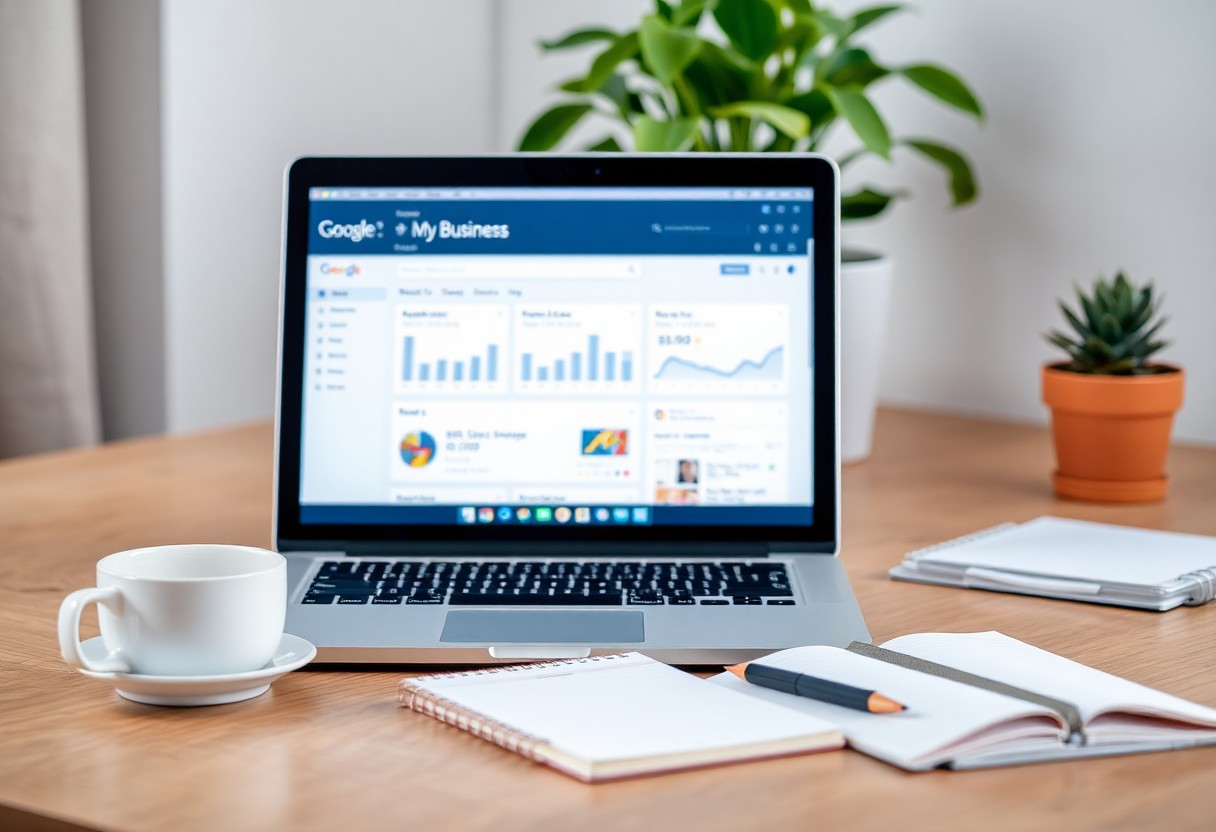
There’s a lot more to ranking well in local search than just having a website. I’ve found that properly optimizing...
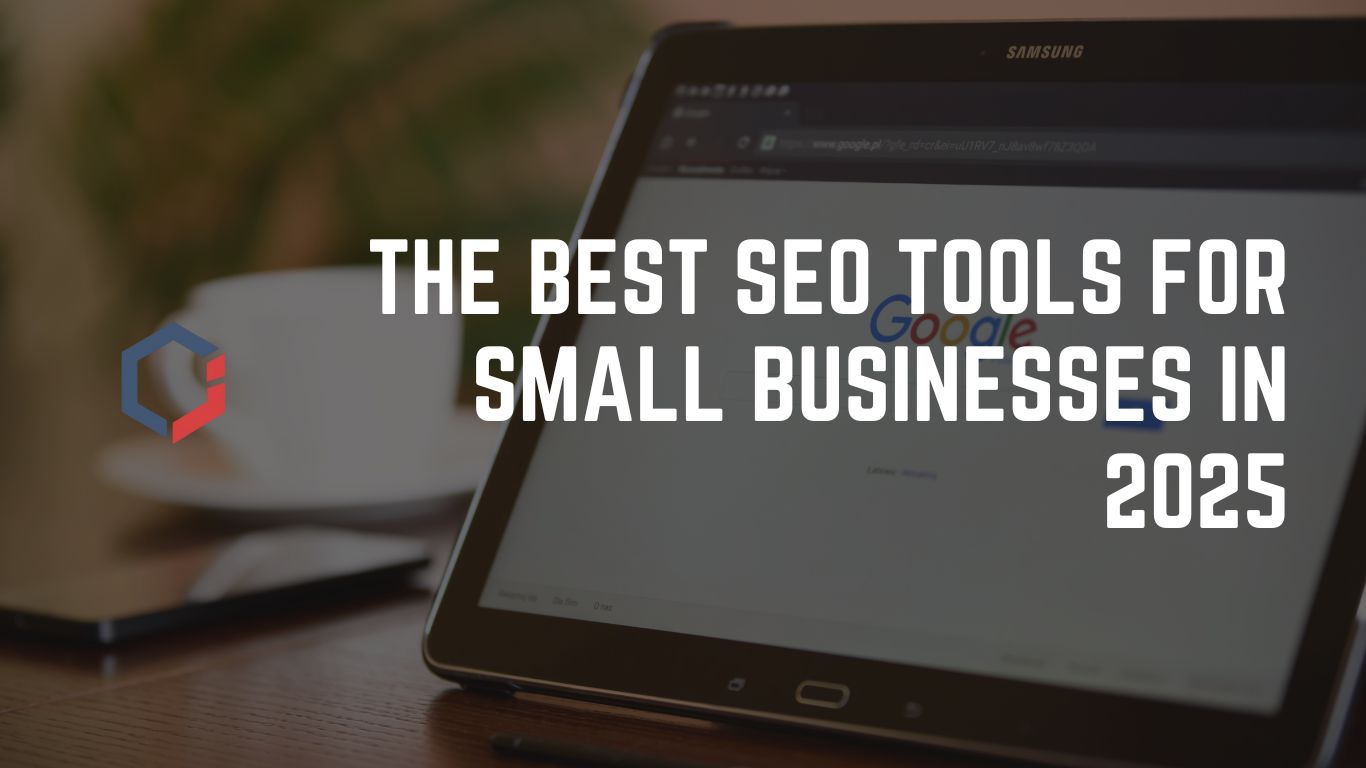
How SEO Helps Businesses Grow Boosting your online presence can be a challenge. For small businesses, competing with big brands...
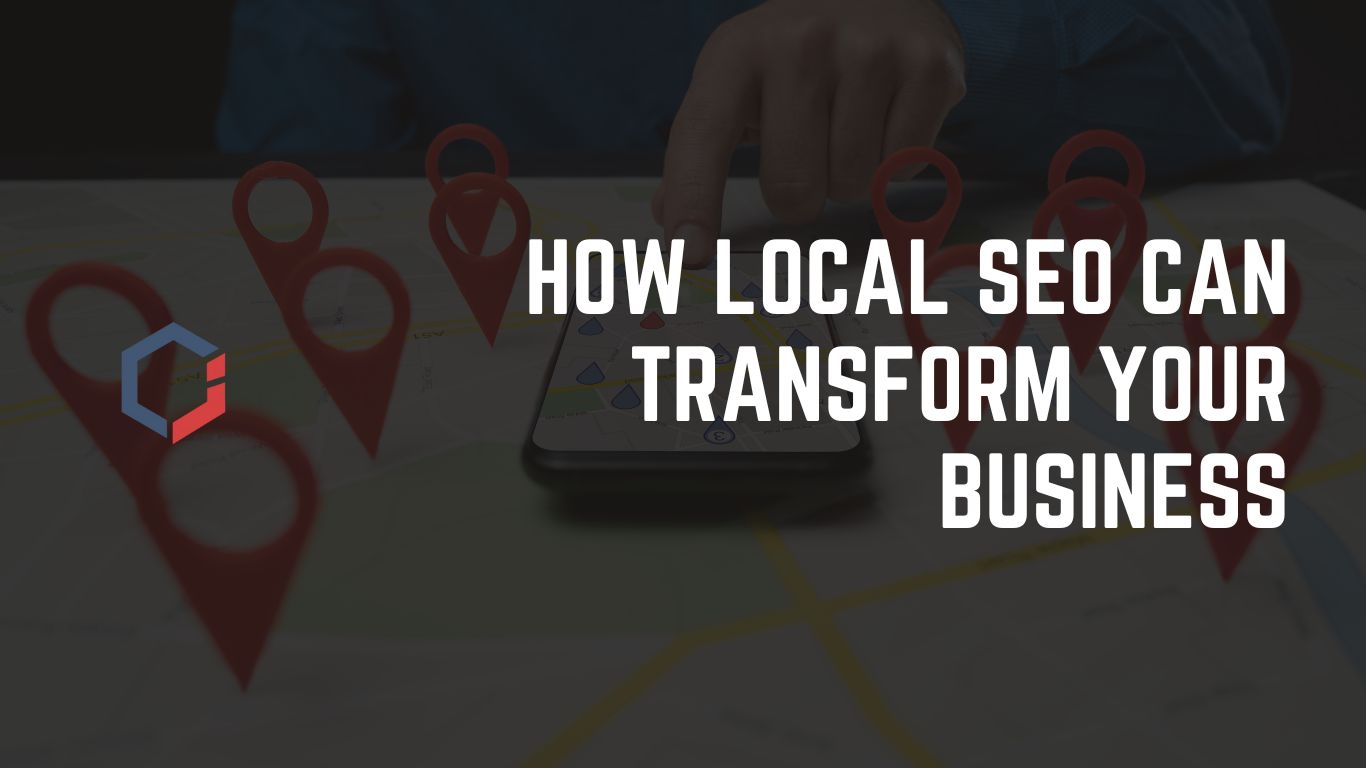
Why Every Business Should Get a Free Website Audit (And Where to Find One) Getting found by local customers matters...
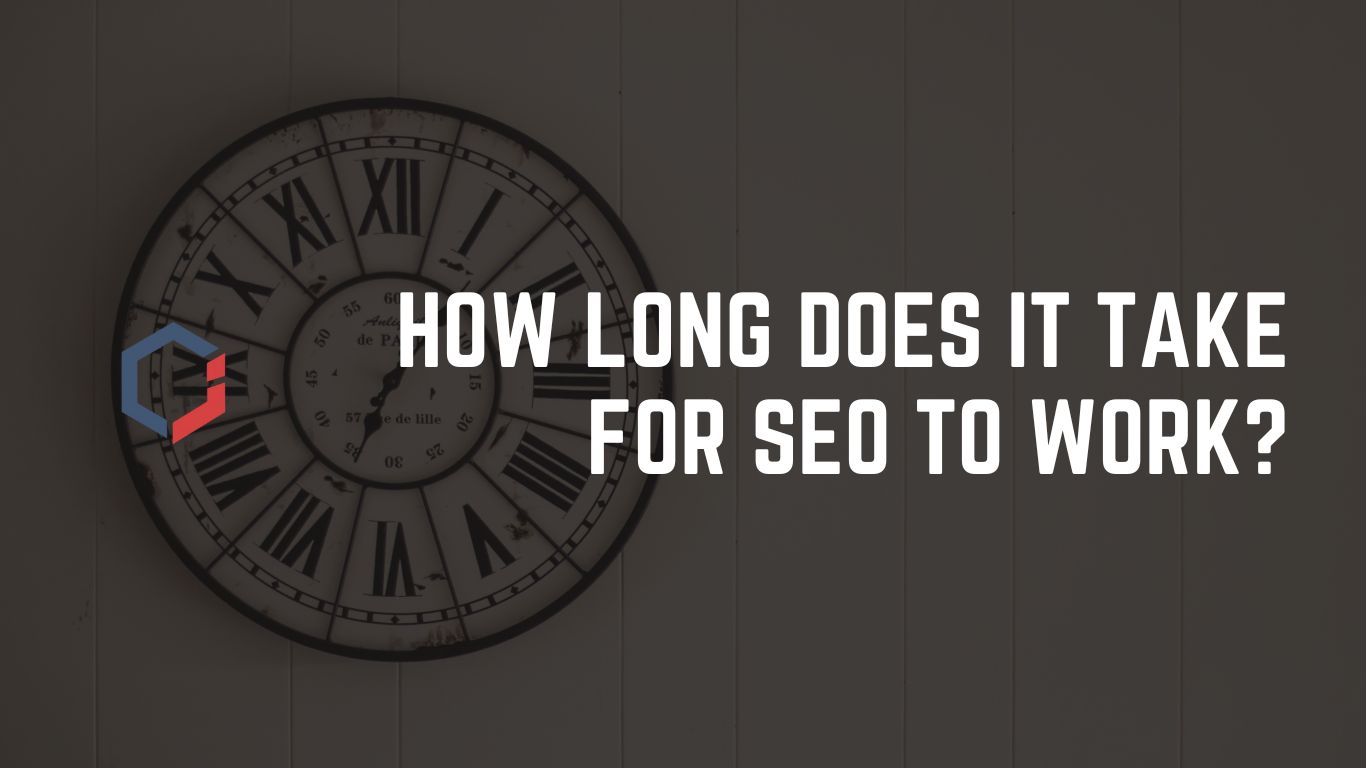
Ultimate SEO Checklist 2025: Comprehensive Guide for Maximum Visibility Getting noticed online is crucial for any business or website. Search...
Stay ahead in the digital game with expert SEO tips, website growth strategies, and exclusive updates. Sign up for our newsletter today.